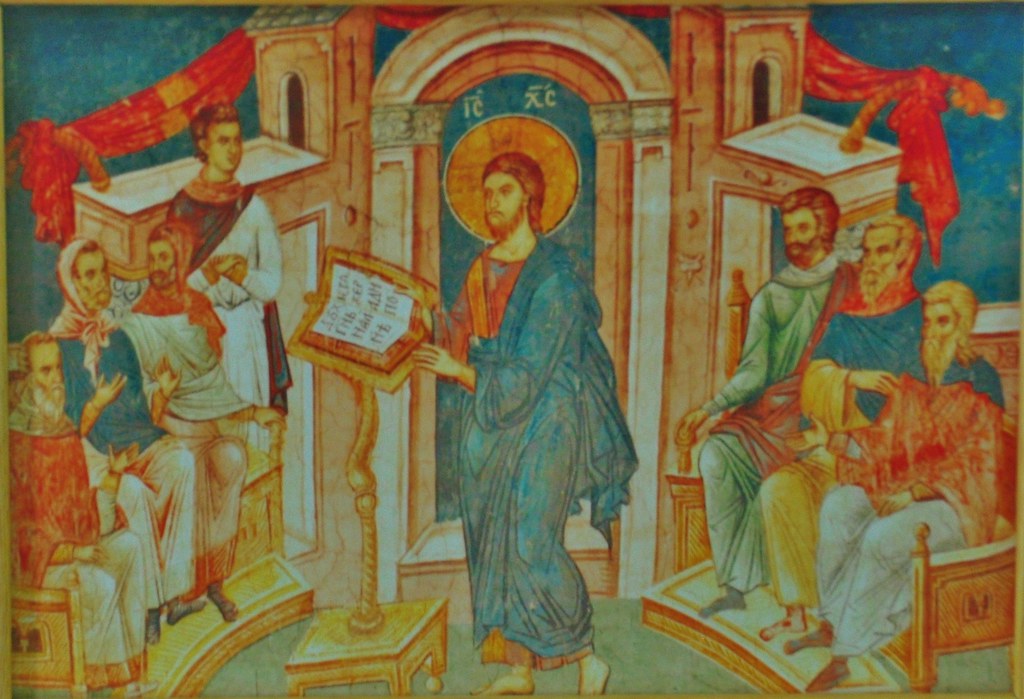
When Jesus entered the synagogue of Capernaum in today’s Gospel, there had been no prophets in Israel for more than four hundred years.
Although worship had been reestablished in the rebuilt Temple of Jerusalem – after the exile in Babylon – in that place, the Jews could only find ‘official priests’ who carried out the rites more or less well, sang with more or less resonant voices, more or less in tune, and they got their job done. Pious Jews who wanted to hear the word of God did not go to the Temple but gathered, on Saturdays, among themselves.
In wealthy towns, they gathered in an ‘ad hoc’ building. There, in a secure closet, they kept their old manuscripts, parchments yellowed by time, where along with the Torah – the Pentateuch – were found the ancient words of the prophets, long gone.
Those prophets who, before, carried directly, in the vibration of their powerful voices, the message of God, moved by the Spirit, were instruments of an authority that came from heaven.
But that had been a long time ago. There were no longer kings or prophets. Now, they only had ‘official priests’.
For that reason, they gathered together with their old manuscripts and, to some who read them a lot and learned them by heart and knew how to find the places and interpret them, they called them ‘scribes.’ But when the Jews met in their synagogues on Saturdays, anyone who knew the old letters could read to those present. Anyone could speak and give their opinion. No one had special authority, not even the head of the synagogue, whose role was not teaching but, rather, looking after the building and the sacred books.
But the Jewish people waited because in the old manuscripts they had read or heard read: “A prophet like me will the LORD, your God, raise up for you from among your own kin.”
There had been no prophets in Israel for a long time. But hope still shined in the cracked parchments. One day, God will raise up a prophet again, and he will speak to His people again. This time, it will not be like in the old days when his words had to be written on skins and stones, but they will be written on the hearts of men, on fire and spirit, in power and works.
And here, when, like every Saturday, the Jews of Capernaum and its surroundings came to the synagogue in today’s Gospel to hear the old words repeated and, perhaps, to raise the old, tired hopes, the voice that reads and comments seems suddenly shook the lethargy of their souls. The cobwebs fell. A new light awakened the assembly and expelled unclean spirits.
Yes, God has spoken again. From Capernaum, his powerful voice will spread throughout the world. This moment marks the beginning of a bonfire that will set the world on fire and warm the hearts of all men.
May the word of Jesus truly speak to our hearts. The Gospel can also become an old manuscript, and its words become dusty. Our religious practices can also mirror the ‘official priests’ and routine.
Christ wants to speak seriously to your soul, sanctify your being, and reign in your muscles and heart. You can always find the imperious word of Christ as a prophet if you look for him with true faith in the synagogue of your heart.
He will shake off the dust of your mediocrities and routines, expel the sordid from within you, and transform you into a champion of his battles. He can also – if you want – make you a prophet of his voice to others.

